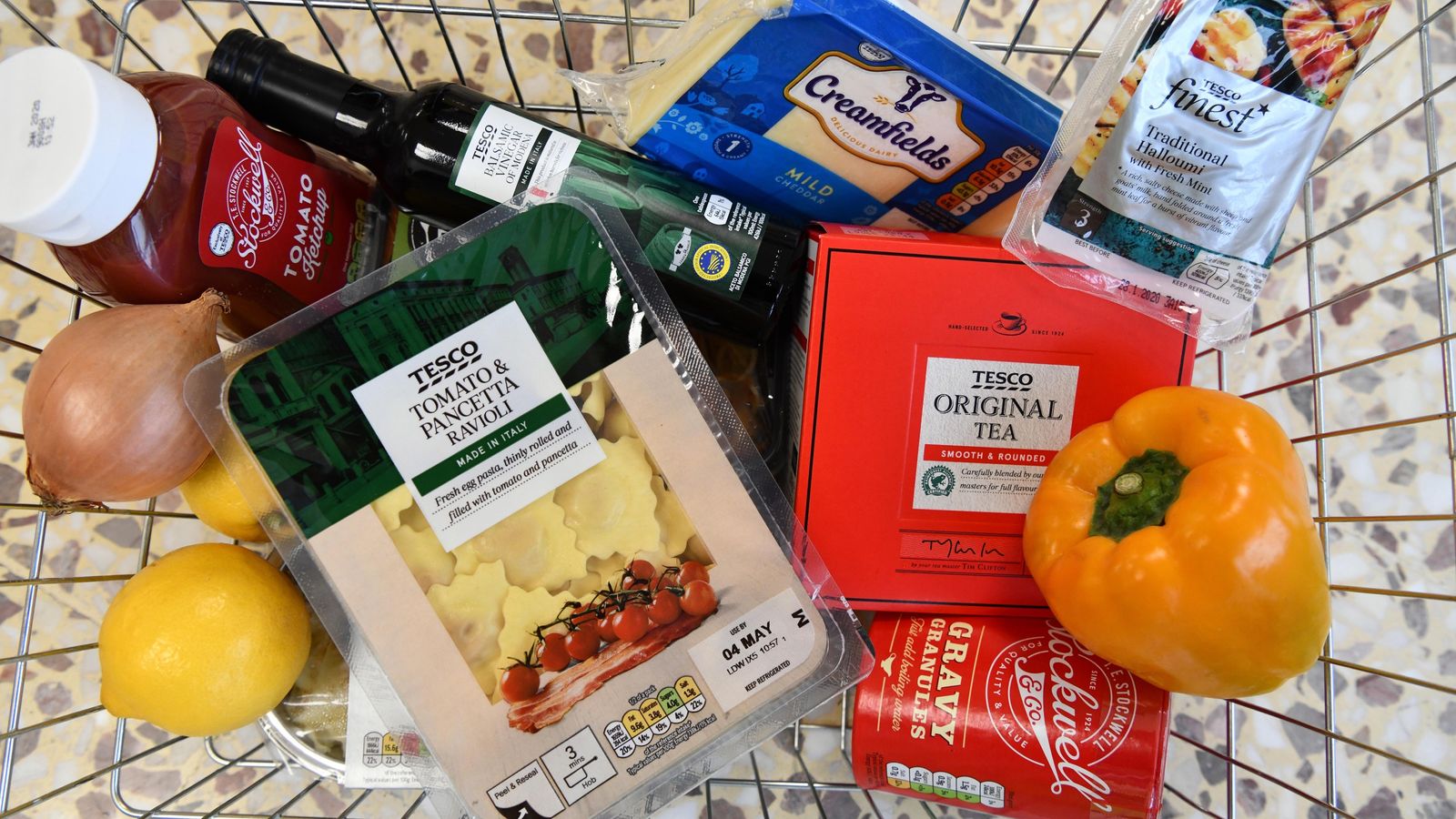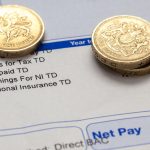The worst of rising food prices is “yet to come” with a potential 5% surge in spring, the chairman of Tesco has warned.
It is the latest bad news amid a growing cost of living crisis driven by rocketing energy prices and tax increases the government will introduce in April.
It follows business secretary Kwasi Kwarteng ruling out to Sky News the prospect of the government cutting VAT on energy bills to provide further support as the cost of living continues to rise.
John Allan, who has been chairman of Tesco since 2015, said price increases at the supermarket could be five times greater over the coming months than they had been in the last quarter.
“Food is a relatively small part of household spending, it’s only about 9%, that figure has halved in the last half century,” he said.”
“But of course, it’s a bigger proportion for those on the lowest incomes,” Mr Allan added to the BBC’s Sunday Morning programme.
“I think we’re concerned particularly about what can we do to try to protect those who are hardest up, who are going to suffer most from that?
Business Secretary Kwasi Kwarteng rules out cutting VAT on energy bills as cost of living continues to rise
Energy crisis: Fears energy companies profit when renewable power slumps – adding to burden on bill payers
Cost of living: Restaurant and hotel prices set to rise as hospitality firms grapple with surge in costs
“And in some ways, the worst is still to come because although food price inflation in Tesco over the last quarter was only 1%, we are impacted by rising energy prices; our suppliers are impacted by rising energy prices.
“So the likelihood is that that inflation trigger will rise but we’re doing all we can to offset it.”
Please use Chrome browser for a more accessible video player
Andrew Bailey, the governor of the Bank of England, warned that inflation could rise about 7% by April and would not fall back to normal levels for two years.
Mr Allan said: “I predicted last autumn that food prices by the spring might be rising about 5%.
“I sincerely believe that it’s not going to be any more than that, it might even be slightly less, but that’s the sort of number we’re talking about.
“But of course 5%, if you’re spending – as some of the least well-off families are spending – 15% of your household income, is significant.
“It troubles us and I’m sure troubles many people that people may have to struggle to choose between heating their homes and feeding their families and that’s clearly not a situation that any of us should tolerate.”
He also cautioned that fuel prices were “unlikely to come down very quickly” to provide any relief.
“There has been a huge surge in fuel prices in the last year. And I think our hope is that they will now stabilised and ultimately come down but they’re unlikely to come down very quickly, I think.”






















